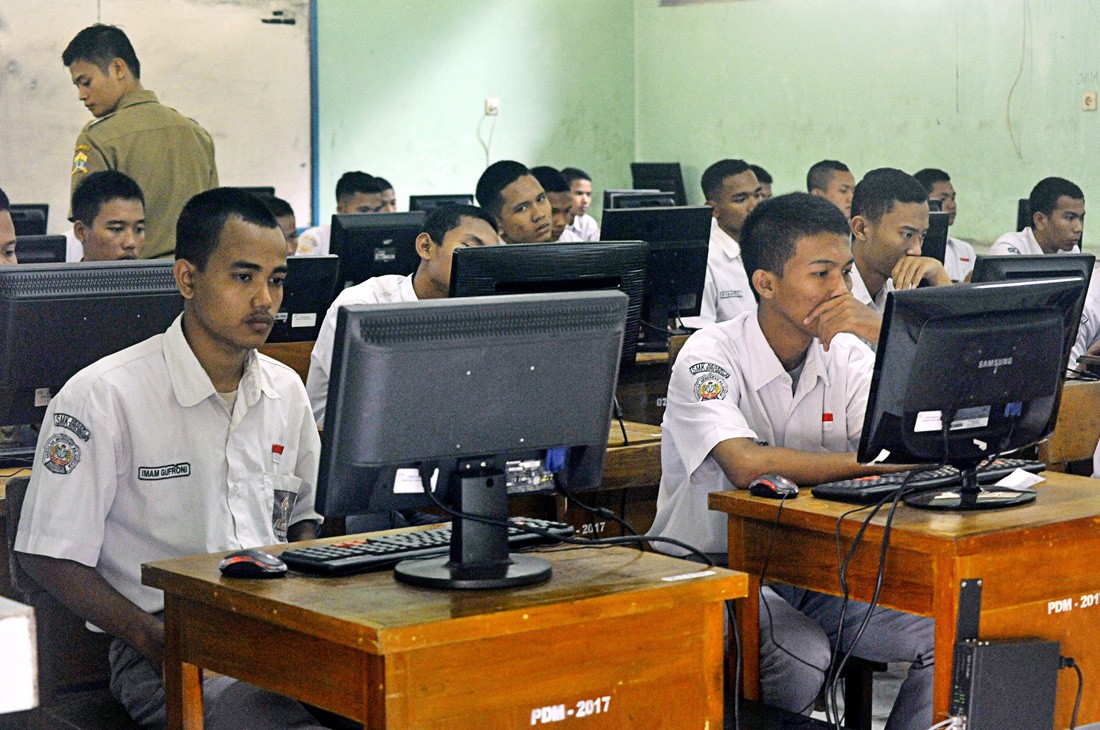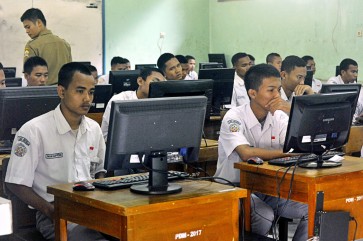Popular Reads
Top Results
Can't find what you're looking for?
View all search resultsPopular Reads
Top Results
Can't find what you're looking for?
View all search resultsInsight: High time for SMP/SMA Inpres to transform Indonesian education
The widening gulf between the rich and poor, partly due to unequal educational outcomes, is a genuine threat to Indonesia’s young democracy.
Change text size
Gift Premium Articles
to Anyone
F
or Indonesia’s revolutionary leaders, public education was an essential building block of the nation. Universal access to schooling would forge a national identify from the archipelago’s thousands of islands and hundreds of ethnic groups. The adoption of Indonesian as the language of instruction was an important milestone in the formation of a national culture, as fewer than 10 percent of the population spoke Indonesian as their mother tongue in 1945.
The common experience of a national curriculum, school uniforms, flag-raising ceremonies and the commemoration of national milestones would awaken a national consciousness in the young generation, the first to grow up in a free and independent Indonesia.
Under Dutch colonialism, most Indonesians had not had a chance to attend school. Good progress was made in the 1950s, as the new government doubled elementary school enrolment and sharply reduced the gender gap in school attendance.
The oil boom of the 1970s financed the second major push to universalize elementary education. The SD Inpres program built 140,000 elementary schools between 1973 and 1984. Enrollment increased rapidly, making it possible to declare six years of compulsory education by 1984. By then, however, the world oil price had declined by over 40 percent from its peak, and the program ended.
The SD Inpres succeeded in raising elementary school attendance but created a new bottleneck at the secondary level. The increase in elementary school graduates led to intense competition for places in junior and senior high schools (respectively SMP and SMA). Thousands of new private schools were established to absorb the excess demand, but many of them were small, with underqualified teachers and lacking basic facilities. Participation increased, but quality suffered. Families that could afford private school fees were priced out of education beyond the elementary level.
In Asia, only India and Indonesia rely heavily on private institutions to deliver secondary education on a large scale. In both countries, educational inequality has reached extreme levels. Results from the Program for International Student Assessment (PISA,) issued by the Organization for Economic Cooperation and Development (OECD), show that on average Indonesian 15-year olds do not achieve minimum standards of literacy and numeracy. Worst are the vast inequalities in outcome revealed in the study. The richest 5 percent of Indonesian students achieve at international levels, while the bottom 40 percent cannot manage basic math problems or read a simple paragraph in the national language with understanding.
Educational inequality has serious economic and political consequences. Students lacking basic skills struggle to find and keep stable, formal sector employment. Meanwhile businesses complain that new recruits lack the language and mathematics skills needed to be trained in industry-specific skills. The widening gulf between the rich and poor, partly due to unequal educational outcomes, is a genuine threat to Indonesia’s young democracy.


















